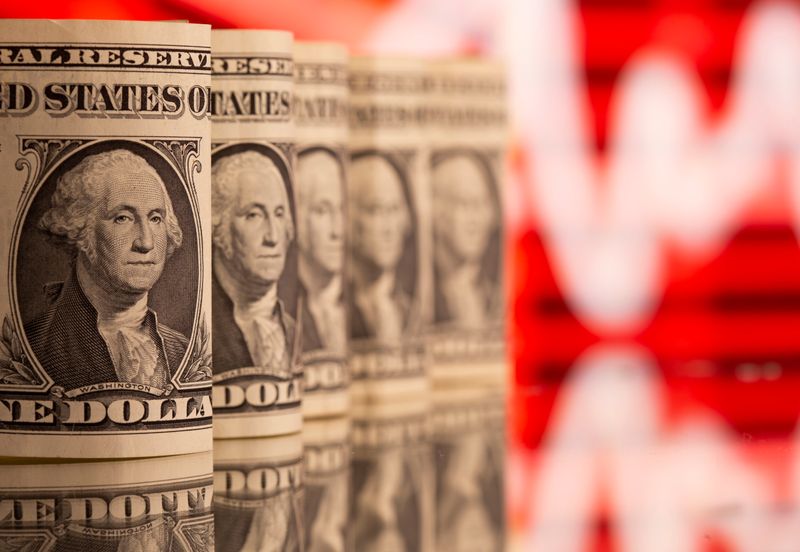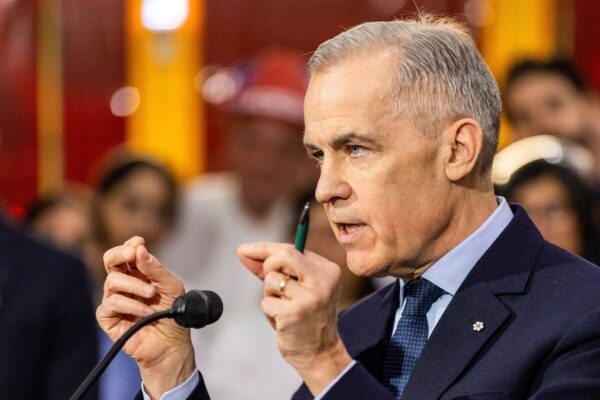Dollar lower after weak data, as inflation fears ease
© Reuters. FILE PHOTO: U.S. One dollar banknotes are seen in front of displayed stock graph in this illustration taken, February 8, 2021. REUTERS/Dado Ruvic/Illustration By Kate Duguid
NEW YORK (Reuters) -The dollar edged lower against major currencies on Friday after U.S. retail sales unexpectedly stalled in April and as concerns about prospects of accelerating inflation receded.
The greenback (=USD) was down half a percent against a basket of currencies at 90.317, retracing most of the gains made earlier this week after data showed a surprise surge in consumer prices.
The Commerce Department said on Friday that retail sales were unchanged in April after a 10.7% surge in March, boosted by stimulus checks. But another acceleration in retail sales appears likely in the coming months as the U.S. economy reopens and Americans spend the savings they have been amassing.
Friday’s drop erased some of a two-day rally in the dollar after data on Wednesday showed U.S. consumer prices increased by the most in nearly 12 years. While the Fed has pledged to keep interest rates low even as inflation rises, some in the market have bet that the Fed will be forced to act sooner than expected, making the dollar more attractive.
The combination of weak economic data – last week’s non-farm payrolls report and retail sales on Friday – and evidence of stronger inflation has meant that the dollar has struggled to make much headway, wrote Jonas Goltermann, senior economist at Capital Economics.
“The prospects for monetary policy normalisation remain key. Minutes from the April FOMC meeting, released on Wednesday, may provide some further clues as to policymakers’ intentions in that regard.”
The euro was among the gainers against the dollar on the day, up 0.53% at $1.214. Wall Street also bounced back on Thursday and Friday after falling earlier in the week. The return of risk appetite that bolstered U.S. stocks also helped to support the euro.
The pound gained roughly 0.80% this week on bets of a strong economic recovery in Britain and expectations that any Scottish independence referendum could be a ways off.
In cryptocurrencies, Bitcoin has dropped more than 13% this week after Tesla (NASDAQ:TSLA) boss Elon Musk said he would stop accepting the token as payment over environmental concerns. It was moderately stronger on Friday, up 1.70% at $50,517.66.












 Bitcoin
Bitcoin  Ethereum
Ethereum  Tether
Tether  XRP
XRP  USDC
USDC  Solana
Solana  TRON
TRON  Figure Heloc
Figure Heloc  Lido Staked Ether
Lido Staked Ether